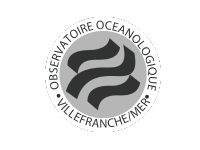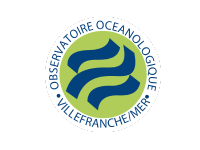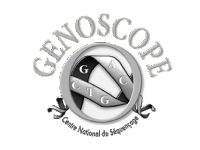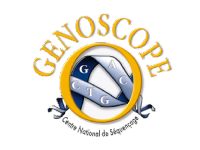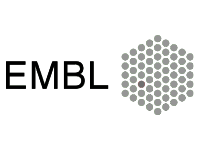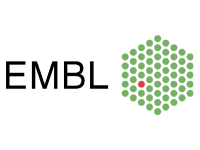
You are here
IncuCyte® S3, a new equipment to support applied research in OCEANOMICS.
In the wake of OCEANOMICS and the current developments in automated plankton imaging (WP3), the KISSf platform keeps up: it has invested in a new equipment, the IncuCyte® S3. It will be used in order to carry out applied researches within the OCEANOMICS WP7. Interview with Stéphane Bach, senior research engineer, KISSf manager and WP7 leader, and Nathalie Desban, assistant engineer and supervisor of cellular assays in KISSf.
Could you remind us of Work_package 7 objectives and tell us more about KISSf platform?
[Stéphane Bach] WP7 focuses on the applied research of the OCEANOMICS project. Downstream of fundamental research, which consists in the analysis of data from the expedition Tara Oceans (2009-2013), partners involved in this working group pursue, among others, the following objectives:
- Streamline research of bioactive compounds from oceanic plankton, especially lipids and secondary metabolites from these organisms,
- Explore the diversity of metabolites produced by selected marine strains under controlled conditions and identify their biotechnological potential,
- Characterize new molecules (and related strains) of interest in dermocosmetics and pharmaceuticals,
- Develop a partnership between technical platforms from academic sector and biotech companies.
Within these platforms, KISSf (Kinase inhibitor specialized screening facility), of which I am the manager, is one the platforms at the Station Biologique de Roscoff (OCEANOMICS partner 3). We perform two types of molecular screening: enzymatic (in vitro screening) and cellular (ex vivo screening). We offer our expertise and facility to OCEANOMICS, especially in the task 7.2 (Screening plankton strains for bioactive compounds).
Protein kinases are key regulating enzymes in many cellular mechanisms, and their deregulations are involved in numerous human pathologies. They have thus became a major class of therapeutic targets for the development of new therapeutic drugs.
Moreover, we seek to characterise active compounds, assessing their role, ex vivo, in inhibition and/or activation mechanisms in cultured mammalian cell migration and in vitro cellular growth. To do that, different fractions and sub-fractions of active extracts are studied. These protocols can also be applied to dermocosmetics.
The IncuCyte® will be useful in these ex vivo approaches.
How would you describe this equipment in a few words?
[Nathalie Desban] It is an imaging system that enables to follow progression of live cells in real time. Phenotypes are associated to diverse quantitative time-dependent data. The interest of the system lies in its automation. It is equipped with an optical microscope endowed with several lenses (4X to 20X) and it is placed directly inside a CO2 incubator.
Thanks to the analysis software, the follow-up can be done 24 hours a day, during many days or even weeks, without any human intervention on microplates containing the cells. They remain confined in optimal conditions all along the experiment. This enables long-term follow-up, without perturbations that could be due to frequent observations outside the incubator.
The IncuCyte® presents other advantages, especially regarding the productivity. It accommodates up to six microplates at a time. Hence, several users can run their experiments in parallel. Moreover, it offers the opportunity to set up different protocols on each plate. Thereby, different observations can be performed at the same time, for example, observe wound healing, apoptosis, cellular division, etc…
[Stéphane Bach] In order to track the action of a molecule on the cell fate (life/death), the system allows for visualization in phase-contrast and also red and green fluorescence, using filters to excite fluorescent markers. And actually, we can run at once up to four types of experiments.
It is possible to look at the action of a molecule on spheroids (3D assembly of cells loaded into a gel), observe cells' ability to reinvade an injured space (wound healing), quantify cellular proliferation by counting fluorescent nucleus, at finally characterize cell death, also using fluorescent reagents.
And in the precise case of OCEANOMICS?
[Stéphane Bach] As it happens, we will take benefit of these opportunities to enlarge our panel of tools to search for and study compounds' activity extracted from planktonic strains. A selection has been made among the 4600 strains of microalgae, bacteria and viruses contained in the Roscoff Culture Collection (one of the world largest collection). The choice has been done looking at, among others, knowledge from working groups on genetic data and ecosystems modelling (WP4 and WP5). The selected organisms must be cultured at a preindustrial scale to have enough extracts in order to realize the whole set of experiments we planned. This is achievable with the support of our private partners Soliance/Givaudan and Greensea. To date, about forty extracts have been tested and we have already detected interesting activities. We now have to pursue these first observations and the IncuCyte® equipment will be a new powerful tool to decipher the precise cellular effect of these promising marine extracts.
Contact :
Station Biologique de Roscoff
Stéphane Bach ( - +33 2 98 29 23 91)
Nathalie Desban ( - +33 2 98 29 23 64)
The IncuCyte has been partially funded thanks to the OCEANOMICS project. The KISSf platform thanks the GIS IBISA for supporting the purchase of this equipment.






